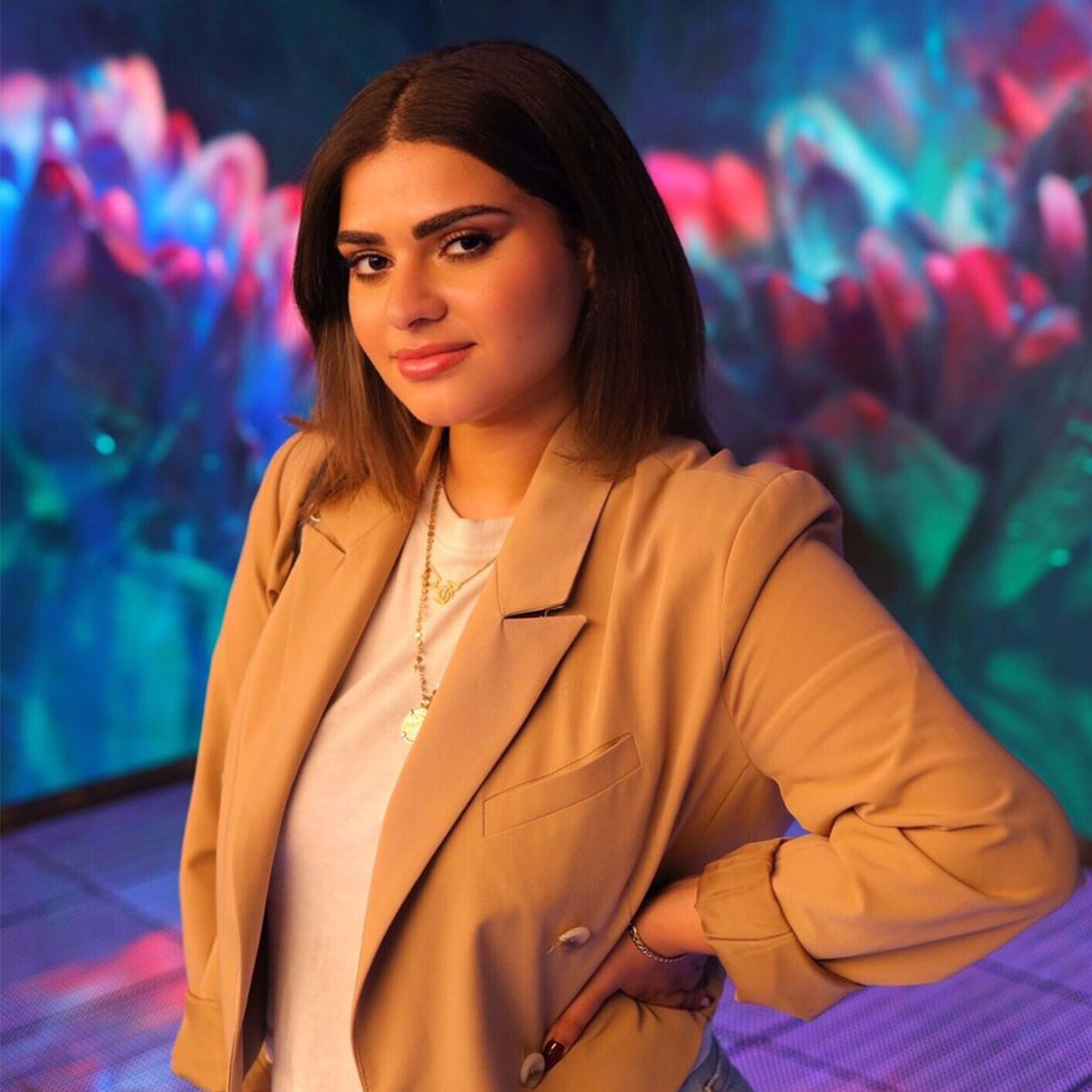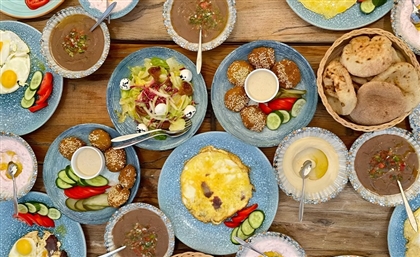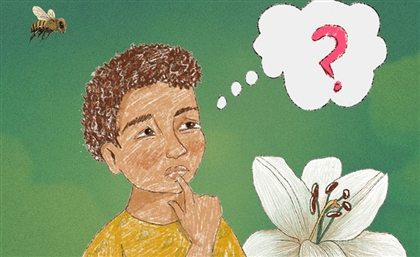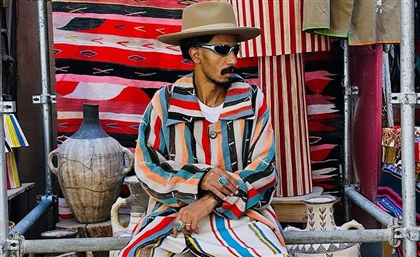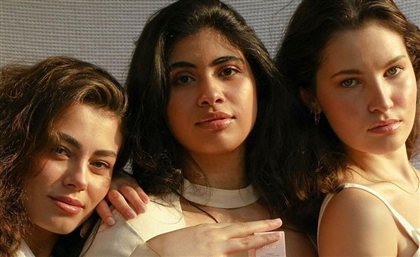Diwan Co-Founder Nadia Wassef Pens Book About Iconic Bookstore
‘Shelf Life: Chronicles of a Cairo Bookseller’ by co-founder Nadia Wassef describes Diwan Bookstores' growth from 2002 till 2013. But it is more than the biography of a bookstore.
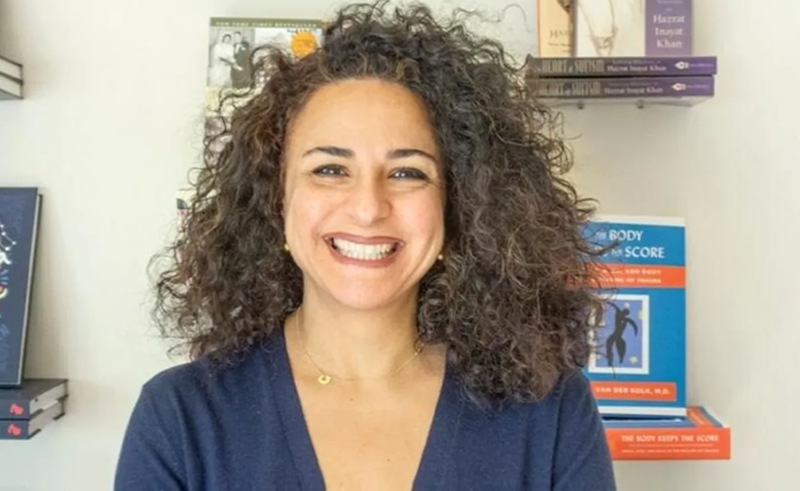
When I was 8-years-old in 2004, I remember visiting Diwan Bookstore in Zamalek with my mother. An avid reader for as long as I can remember, there was nothing more intimate to my mother than bonding with her daughter over our mutual love of words. Maybe it’s the Pisces in her, but with every trip to the store she would make it a point that I should choose a book that went into some core facet of the human experience - her attempt at raising a girl well-prepared for so-called ‘real life’. This continued for two more years before we packed our bags for Vancouver, leaving our city and beloved weekend pastime behind.
When I flew back to Egypt years later, I found Diwan Bookstore just where I left it. And then I learned about how huge it got during my absence. It survived economic meltdowns and social upheavals, and opened nine new branches with over 150 employees alongside the villas of Heliopolis or by the beaches of the North Coast. It had come a long way since it first graced Zamalek in 2002. While I was going through some growing pains of my own, Diwan Bookstore managed to flourish and live out its own story - one I was glad to catch up on through a new book titled ‘Shelf Life: Chronicles of a Cairo Bookseller’, by co-founder Nadia Wassef.
The book covers Diwan's life from 2002 till 2013, from its birth to its transformative adolescence. But it is more than the biography of a bookstore - Wassef wrote it to evoke the feelings that ensconced Cairo during a unique moment in time. A bold and humorous debut, she recounts the setbacks they encountered in the face of bureaucracy and a patriarchal society, braiding in historical context and a few real stories with customers.
“I love my city and I love my bookstore. But like most relationships that extend over a long period of time, they become complicated, weighed down by layers of emotion, frustrations, and expectations,” Wassef tells CairoScene. “It was only after enough time and space had separated me from Diwan and Cairo that I was able to think about and understand my relationship with them. I think I sum it up best in the prologue of the book. Diwan was my love letter to Egypt. It was part of, and fuelled by, my search for myself, my Cairo, my country. And this book is my love letter to Diwan.”
The book recollects Diwan’s founding by Wassef and her sister Hind after the passing of their father. To them, Diwan was a way to process their loss by pursuing their dream of opening a bookstore with friend and partner Nihal Schawky. Joined by three more of their friends, the sisters found an empty shop that was available at a prime location in their native neighbourhood of Zamalek, dead centre of the ever-busy and always-crowded 26th of July Street. There were few places in Cairo that could encapsulate the spirit of the bookshop quite as well as Zamalek. Decades of high society lent the area its unmistakable air of nostalgia, after serving as the home of some of Egypt’s most culturally essential artists, like Umm Kalthoum, Abdel Halim Hafez, and Mohamed Abdel Wahab.
Nowadays, that once-empty shop has grown into an institution for Cairo’s literature enthusiasts. Once they step through its doors, visitors are often overcome with a wave of calm and ease. Shoppers at Diwan Bookstores are met with earthy antique interiors and a warm ambience that melts into Zamalek’s signature art-deco architecture. Then, the smell of brewing coffee, baked goods, and freshly-printed pages settles into the air, accompanying guests on their search for the perfect read. It’s the same now as it was all those years ago, when my mother would sit with a copy of Neale Donald Walsch’s ‘Conversations with God’ series paired with a cappuccino on one side of the cafe table, while I picked something along the likes of ‘The Color Purple’ by Alice Walker or ‘Sadako and the Thousand Paper Cranes’ by Eleanor Coerr with an orange juice and a cinnamon cookie. Diwan Bookstores thrives on memories of its past, in one way or another.
‘Diwan’ itself is a word loaded with meaning. It can refer to an anthology of poems in Persian and Arabic, or used to describe a school of calligraphy. It can also be a place where people come together. Best represented through its logo - a fusion of Arabic and Roman script created by Nermine Hammam of Equinox Graphics - ‘Diwan’ ties together all the facets of the shop’s spirit, the gathering place of a community that cannot be simulated through a dot com portal. “A bookstore is a living being,” Wassef explains. “A good bookstore is part of a dialogue between writers and readers, the past and the present. It also absorbs much from its readers and patrons, their tastes, their habits, and it tries to introduce them to new ones.”
It’s that constant representation of the past, and its continual presence in the present, that allows Diwan to endure for as long as it has. Whether it’s the inherent nostalgia of its original Zamalek location, or the battlescars earned through the struggle of running a bookstore, or the memories it creates within its walls, that constant respect for what came before is core to Diwan’s story. In much the same way Diwan Bookstores is a reflection of the culture and people around it, those experiences with my mother were the first time I was able to see myself reflected in her.
And in that same spirit, ‘Shelf Life: Chronicles of a Cairo Bookseller’ collects the struggles that Diwan and Cairo and Egypt all went through, and allows Wassef to see herself reflected in all of them. “Diwan made me who I am and then broke me. That is a wonderful thing,” Wassef says. “I think being broken is an important part of being resized, being reminded of what is important. It isn’t pleasant, but it’s necessary. Diwan, like Cairo, lives inside me. I am grateful for all that they have given me and I hope that I have given back.”
- Previous Article Dr.Sisilove or How (Not) To Diffuse A Bomb
- Next Article Pfizer is Helping to Digitise the Egyptian Healthcare System



